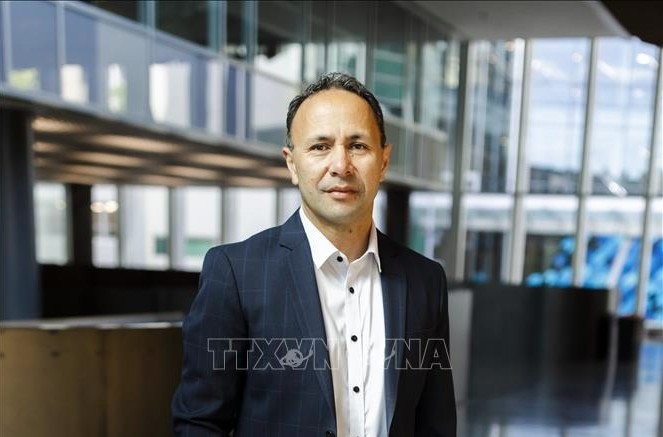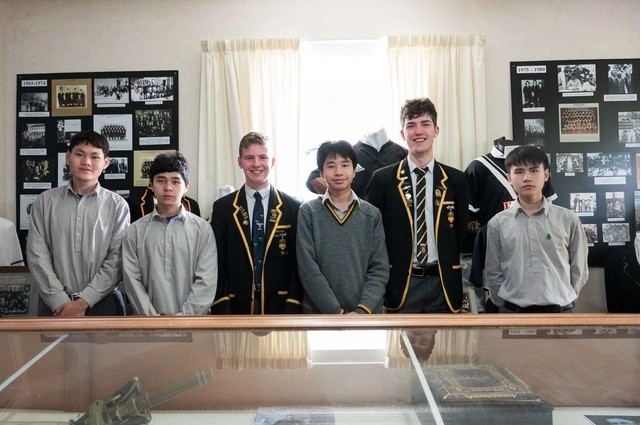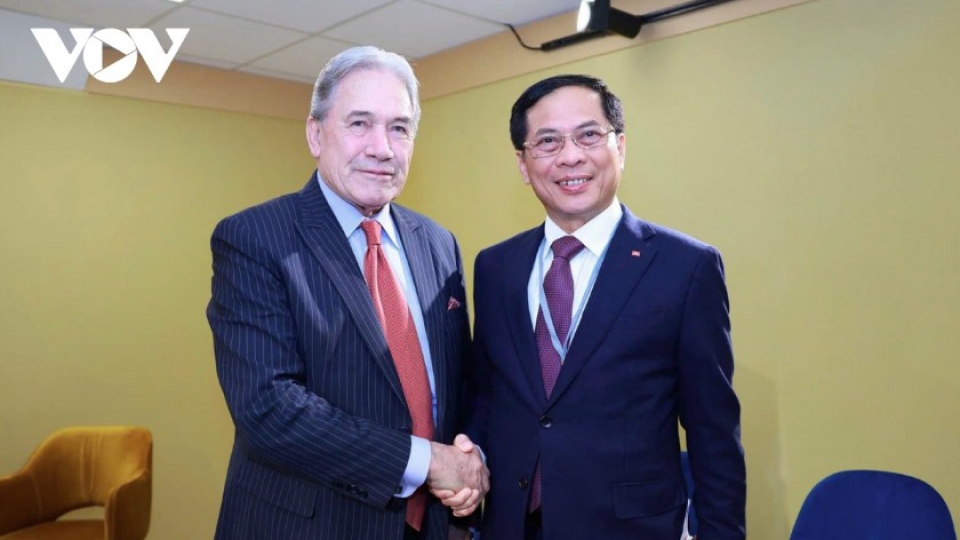Education a key pillar in 50 years of Vietnam-New Zealand relations
VOV.VN - In a recent press interview marking the 50th anniversary of diplomatic ties between Vietnam and New Zealand (June 19, 1975 – June 19, 2025), Professor Damon Salesa, Vice-Chancellor of Auckland University of Technology (AUT), highlighted that New Zealand was one of the first countries to establish diplomat

Since then, Vietnam has become one of New Zealand’s key trading partners, with bilateral relations growing steadily stronger. This was reaffirmed in February 2025, when New Zealand Prime Minister Christopher Luxon visited Vietnam and the two countries elevated their relationship to a Comprehensive Strategic Partnership.
Professor Salesa, who accompanied Prime Minister Luxon on the visit, remarked that the upgrade signals deepening trust, shared values, and expanding opportunities between the two nations. The new framework provides a more structured foundation for cooperation and co-creation across sectors, paving the way for greater government backing of academic partnerships, student mobility, joint innovation projects, and capacity-building initiatives.
He noted that the upgraded relationship also represents a milestone that affirms the level of trust, ambition, and strategic alignment between the two countries, particularly in areas such as trade and investment, defense and security, education, and people-to-people exchanges. Both governments are actively pursuing stronger economic ties, with a shared goal of increasing bilateral trade to US$3 billion by 2026.
Education stands out as a critical enabler of bilateral progress. World-class universities in New Zealand, including AUT, have built strong ties with Vietnamese higher education institutions through student and faculty exchange, collaborative research, joint programs, and capacity-building projects from the original Colombo Plan to today’s Manaaki New Zealand Scholarships. These academic relationships help lay the groundwork for broader collaboration in emerging areas, backed by rapid developments in digital technologies and artificial intelligence.
To underscore AUT’s long-standing partnership with Vietnam and its ties with leading institutions, the university signed a Memorandum of Understanding with VNU-HCM University of Science during Prime Minister Luxon’s visit. The agreement focuses on strengthening historic ties through new collaboration in computer science, AI, data science, and human-computer interaction.

According to Professor Salesa, the agreement will bring Vietnam and New Zealand even closer, enabling collaborative research and the training of students directly in Vietnam to help deal with the country’s skills shortages. As New Zealand’s only university of technology, AUT is uniquely positioned to work with countries like Vietnam in advancing research, contributing to shared progress, and supporting the region’s new innovation-driven economy.
Professor Salesa also observed that Vietnam is among the most digitally connected countries in the Asia–Pacific, with some of the region’s best digital infrastructure and a digital economy projected to grow 20% annually.
Meanwhile, New Zealand brings expertise in ethical AI, inclusive digital development, and sustainability-focused technologies, areas that can generate meaningful shared value and expand cooperation in digital transformation, green growth, sustainable energy, and high-tech agriculture.
Despite the remarkable progress in bilateral ties, he said there remains room to grow, especially in education, where student exchanges have huge untapped potential. These programs help build mutual understanding, strengthen people-to-people connections, and nurture future leaders with global mindsets and intercultural awareness.
However, student exchange activity between the two countries remains limited. While Vietnam is a vibrant and dynamic country playing an increasingly important role in the region, awareness of it as a destination for study or internships remains relatively low among New Zealand students.
Language barriers and logistical challenges also make Vietnam a less obvious choice for outbound study.
Professor Salesa suggested that promoting Vietnam more effectively as a destination, increasing scholarships, and providing institutional and government-level support could help make such programs more accessible and appealing. He also stressed the need to resume direct flights between the two countries.
Looking ahead, he affirmed that both nations have vast potential for cooperation, bilaterally and on the international stage. As two dynamic Asia–Pacific countries, Vietnam and New Zealand share many common interests in sustainable development, education, innovation, trade, and regional stability.
Clear opportunities exist to deepen cooperation in areas such as digital transformation, agriculture, tourism, education, and research, thus leveraging the strengths of both sides. Universities, he noted, can serve as key bridges, connecting knowledge, people, and industries.
At the global level, Vietnam and New Zealand also have strong potential to work together on shared challenges such as climate change, food security, digital equity, and security within multilateral forums like APEC and the Comprehensive and Progressive Agreement for Trans-Pacific Partnership (CPTPP).
Professor Salesa concluded that the long-term success of the partnership will depend on the two countries’ willingness to engage, build a shared vision, and invest in people, flexible and innovative infrastructure, and global connectivity. Education, in particular, will play a critical role in reinforcing the Vietnam–New Zealand partnership and in contributing to the two countries’ shared role in the global community.



